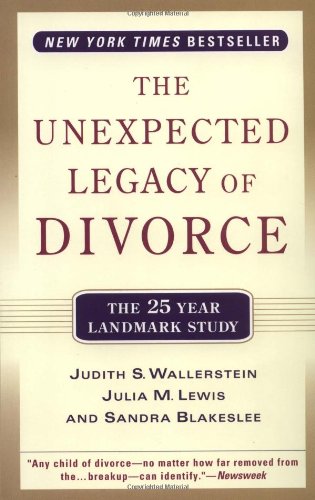1. All Articles, Infidelity: Children & Young Adults
Helping Adult Children of Infidelity Deal With Their Anger
It is important that adult children of infidelity feel able to share their thoughts and feelings with another person—be it a parent or trusted other—rather than hold onto any anger they feel towards the unfaithful parent. Often, expressing anger or hatred leads to deeper feelings of sadness, hurt, and fear. Working to understand the main issues they are facing and the emotional impact of their parent’s betrayal is an important part of the healing process.
Advice for Older Children and Adult Children of Infidelity
Older children and adult children of infidelity who are tempted to hold their betrayed parent responsible for the cheating parent’s unfaithfulness, need to remember that they don’t know the whole story behind their parents’ marriage and what may have led to the infidelity.
It is also important that they be assured it is not their role to offer their parent ongoing emotional support. They may be sympathetic and comforting, but an appropriate emotional boundary should always exist between parent and child, regardless of the child’s age.
What can parents do to open lines of communication with their children and help them face the painful truth of how a parent’s infidelity is affecting them?
Firstly, the unfaithful parent must admit wrongdoing, if only to win back some of the respect from their child. When a parent refuses to offer any genuine apology—for the betrayal, for breaking up the marriage—and to acknowledge his child was profoundly affected by the infidelity, it makes it very difficult for the child to come to any kind of healthy resolution. When wrongdoing is admitted, this may encourage children to open up and talk about their feelings surrounding the infidelity.
“Most parents don’t understand how severely their children are impacted by their infidelity.” —Ana Nogales, Ph.D., Parents Who Cheat: How Children and Adults Are Affected When Their Parents Are Unfaithful
Young adults & adult children need time alone to process what has happened, but also the opportunity to be together with a parent, even if the infidelity isn’t brought up. When children finally do speak out, they need to be free to talk without an adult’s commenting or judging what they say. Assure them that their feelings are valid, and that there is no such thing as a right or wrong feeling, and no shame in having emotions. When children bury their feelings, the rage, sadness, and confusion will spill over into other relationships without their being aware of it.
Jennifer Harley Chalmers, Ph.D., author of Surviving an Affair, likewise believes that when a cheating parent is able to end the affair and explain to their children how wrong they had been, as difficult and humbling as this may be, they are more likely to be able to alleviate to some extent the lessons they had taught their children.
Adult Children of Infidelity Forgiving the Unfaithful Parent
It can be easier for children to think of forgiving the unfaithful parent when they understand that forgiveness does not mean ignoring or condoning what the parent did. It means coming to terms with what happened, and allowing themselves to move through the negative emotions that they find themselves in the grip of.
Forgiving is not condoning. Nor is it an agreement to ignore wrongdoing. Forgiving is about accepting human frailty—even that of a parent whom they looked to as their primary role model. Nogales emphasizes that to come to this place of acceptance as an older child requires going through a process of understanding, expressing, and letting go of their resentments. This includes understanding how they and their family were affected by the infidelity, working through and expressing their feelings about it, and finally relinquishing their anger and resentment.
This requires confronting difficult questions such as: Can I accept that someone I love and trusted has breached my trust? Can I accept my parent failed to live up to his/her professed moral values? Can I accept that one parent deeply hurt the other?
Counsel with a skilled professional or wise and trusted other can be very important, as can journaling, or some form of expressive arts therapy. To the degree a child of infidelity is able to come to a place of understanding and acceptance, they will be free of the weight and the shadow of all those unresolved feelings that otherwise follow them into their own intimate relationships with others.
The Unacknowledged Legacy of Divorce—and of Infidelity

The Unexpected Legacy of Divorce by Wallerstein et al. brings to light the largely unrecognized and unspoken reality that when children of divorce become adults, no less eager than their peers who grew up in intact families for love, sexual intimacy, and commitment, they are badly frightened that their relationships will fail—just as their parents’ did. The strongest consequences of marital disruption do not appear until they confront the challenges of early adulthood. Now while Wallerstein is talking here of divorce, Nogales’s study indicates that children of infidelity struggle with psychological problems similar to those of children whose parents have divorced. And of course, many of the parents of these children separate or divorce.
Wallerstein writes that while the myths persist that children are resilient and resourceful, that “most of the kids in their class are from broken homes, they’ll get over it”—the fact is that they perceive the world as a far less reliable and more dangerous place because the closest relationships in their lives can no longer be expected to hold firm. One might think that the grown children of older couples who experience infidelity or divorce would feel sad but not devastated. After all, they’re adults. But grown children, too, are profoundly distressed and suddenly propelled into examining their own relationships and worrying what and whom they can rely on and for how long.
Wallerstein found that the contrast between children of divorce and children from even moderately unhappy intact homes as they reached adulthood and went in search of love, sexual intimacy, and commitment was striking. Now while it is true that Wallerstein is talking of children of divorce, not infidelity, the parallels are clear and surely few would argue that the implications similarly hold true for children of infidelity. The children from even moderately unhappy families, as young adults, had an understanding of the demands and sacrifices required in close relationships—and memories of how their parents struggled and overcame differences. Adults from divorced families were at a greater personal disadvantage. Anxiety about relationships was the “bedrock of their personalities and endured even in happy marriages, as they lived in the shadows of their fears of disaster and sudden loss, of abandonment, betrayal, rejection.” Be they children of infidelity or of divorce, seeing the breakdown of one relationship after another intensifies the fear that their relationships will fall to a similar fate.
It’s important our children see that while our marriage isn’t perfect, that every relationship goes through its up and down periods, we can communicate and work on it together—even that we can get help when we need it. – KRISTI
Denis Ortman, Cheating Parents: Recovering from Parental Infidelity, finds that many have only vague, if any memories, of that time and little insight into the impact on their own marital life. The impact will not be evident until they begin themselves to engage in intimate relationships.
[box] In Chapter 2: The Nature of Infidelity, we saw that young adults still expect fidelity and loyalty between their parents, and that adult children whose parents cheated still want monogamous relationships themselves. In fact, 93% of them believe marital fidelity is the most important element in a successful marriage. Wallerstein reports that despite their first-hand experience of seeing how marriage can fail, adult children of divorce sincerely want lasting, faithful relationships. They believe divorce in a family with children should be the absolute last resort.[/box]The frontal lobe region of the brain is not fully developed until twenty-five years of age, so much of our behavior before this age is driven by impulse. Children and young adults are constantly observing us, and learn so much from what we say and especially from what we do. Being healthy, positive role models is the best way we can support them in making healthy decisions. – KRISTI
Again, this is not to say that anyone should remain in an unhappy, unhealthy relationship. Rather, it highlights the importance of a couple realistically looking at what divorce entails for the family, and the importance of exploring every possible avenue—including counseling—before making the decision to separate. And of course, with respect to infidelity, it highlights the importance of being aware of the repercussions on the family—and doing what’s needed to protect the marriage.
Recommended Books on Children of Cheating Parents:
- Parents Who Cheat: How Children and Adults Are Affected When Their Parents Are Unfaithful, by Ana Nogales, Ph.D
- Jennifer Harley Chalmers, Ph.D., Surviving an Affair
- The Unexpected Legacy of Divorce, Judith Wallerstein
- The Marriage-Go-Round, by Andrew Cherlin,
- Cheating Parents: Recovering from Parental Infidelity, by Denis Ortman

